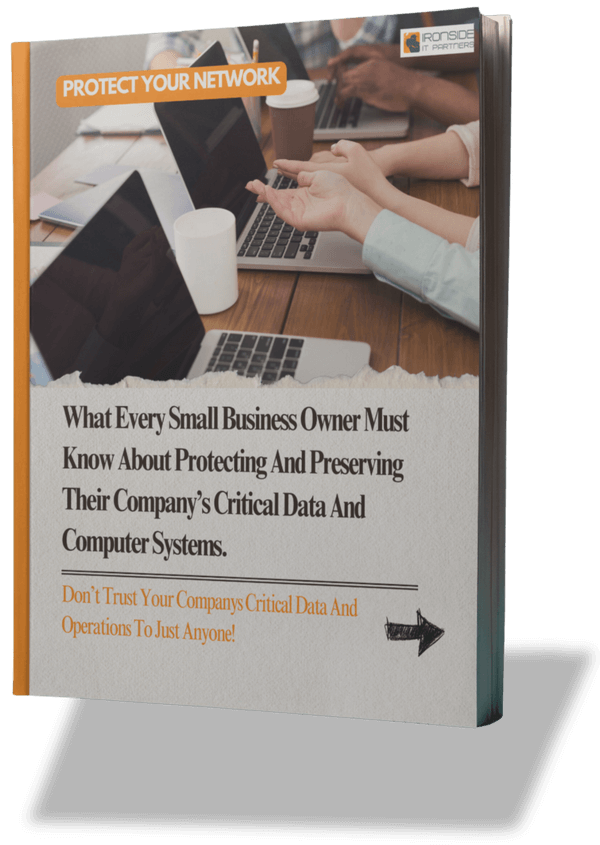
Black Friday and Cyber Monday are peak times for hackers and scammers, targeting unsuspecting shoppers to steal personal information, credit card details, and access to online accounts.
To help you shop safely, we’ve compiled eleven essential tips to protect your information and devices this holiday season.
1. Shop Only on Trusted Websites
Stick to reputable retailers and official websites when shopping online. Before making a purchase, check that the website URL is spelled correctly and includes “https://” with the padlock icon, indicating a secure connection. Unknown or unfamiliar websites may be set up solely to steal your information or install malware on your devices.
2. Watch for Fake Deals
Scammers often lure shoppers with deals that are too good to be true. For example, if a high-end laptop is advertised at a fraction of its normal cost, it’s likely a scam. Always research the deal and compare it with the retailer’s official pricing. If the offer seems unrealistic, it’s safer to skip it.
3. Use Secure Wi-Fi Networks
Public Wi-Fi, such as networks in coffee shops, airports, or malls, can be easily intercepted by hackers. Avoid entering personal or payment information while on public networks. Instead, use a secure private connection or your mobile data when making purchases. Using a VPN can also add an extra layer of security.
4. Protect Your Personal Items
For in-store shopping, remain aware of your surroundings and keep your personal items close at all times. Keep bags zipped and wallets secured, and avoid leaving devices unattended while checking out. Pickpockets and opportunistic thieves often target busy shopping areas during the holiday season.
5. Verify Emails and Links
Phishing emails and fake order confirmations are common during the holidays. Cybercriminals may send emails claiming there’s an issue with your order, a delayed package, or a “special offer” that requires clicking a link. Always log in directly to the retailer’s website rather than clicking links from emails or texts to confirm your order or account status.
6. Never Share Sensitive Personal Information
Legitimate retailers will never ask for personal details like your Social Security number, full date of birth, or bank PIN. Sharing this information can lead to identity theft or financial fraud. Only provide the information required for your purchase, and be skeptical of any additional requests.
7. Keep Your Devices Updated
Ensure your phone, tablet, and computer are running the latest software updates before you start shopping. Software updates often include critical security patches that protect against known vulnerabilities. Hackers actively target devices with outdated operating systems during high-volume shopping periods.
8. Use Strong, Unique Passwords
Every account should have a strong, unique password to prevent unauthorized access. Avoid using the same password across multiple sites. A password manager can generate complex passwords and safely store them, making it easier to maintain good security practices without relying on memory alone.
9. Enable Multi-Factor Authentication (MFA)
MFA adds an extra layer of protection for your accounts. Even if a hacker obtains your password, they won’t be able to access your account without a second verification step, such as a code sent to your phone. Many major retailers now support MFA for online accounts — enabling it greatly reduces your risk of being hacked.
10. Avoid Downloading Suspicious Files or Apps
Only download apps from official app stores and avoid opening attachments, PDFs, or software from unknown sources. These files may contain malware designed to steal passwords, credit card information, or other personal data. Always verify the source before downloading anything, and regularly scan your devices for malware.
11. Monitor Your Accounts and Transactions
Regularly review your bank and credit card statements, and set up alerts for transactions. Immediate notification of suspicious activity allows you to act quickly and prevent further fraud. Additionally, keep a record of your online purchases and compare them to your statements to catch discrepancies early.
Cybercriminals are especially active during the holiday shopping season, so vigilance is essential. By following these eleven tips, you can shop safely, protect your personal and financial information, and enjoy the deals without worry.
Stay alert, shop smart, and make this holiday season both fun and secure.



